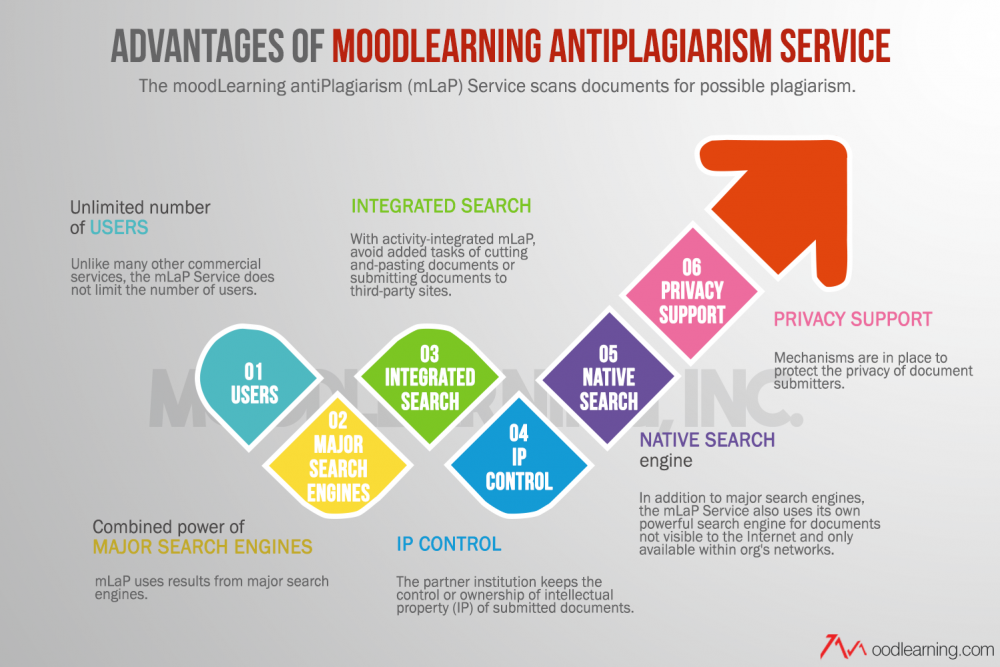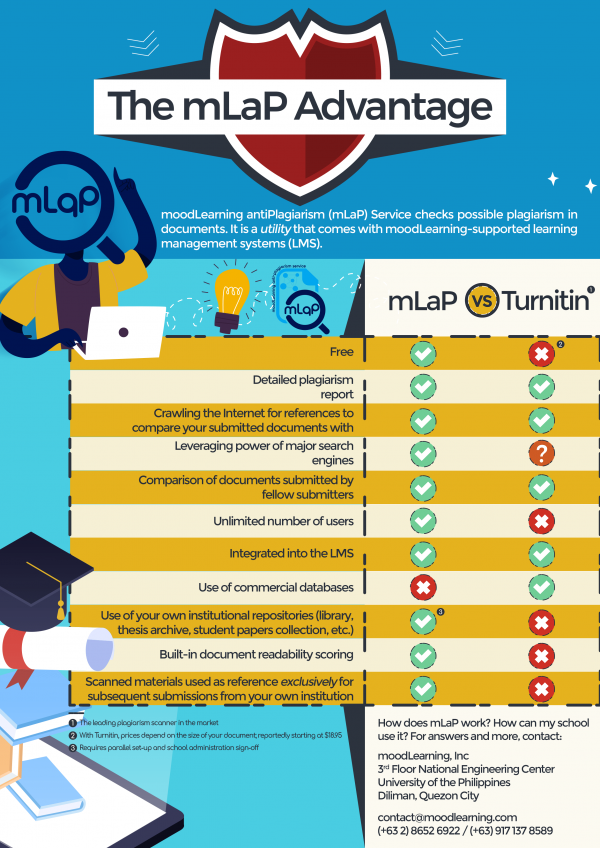Table of Contents
moodLearning antiPlagiarism Service
moodLearning antiPlagiarism (mLaP) Service checks possible plagiarism in documents. It is a utility that comes with moodLearning services for certain e-learning platforms. mLaP is bundled with a moodLearning service contract and is exclusive to moodLearning partners.
Functionalities
The moodLearning antiPlagiarism (mLaP) Services
- searches and compares similarities between submitted assignments using pair-wise document comparison. Included in those compared documents are submissions from other classes.
- searches the Internet for similar documents and display similarity results
- processes txt, pdf, doc, docx, odt, rtf, txt, cpp, java files submitted
To take advantage of this functionality, an institutional partner needs to deposit materials in bulk to the mLaP Search repository using this instruction. See mlap-service-management-q-a and search.moodlearning. Contact moodLearning Support for assistance.
LMS Plugin
- checks submitted assignments by comparing them with other submissions and other similar materials available online. This is currently available in Moodle, especially the latest version. Integration into other learning management systems (LMS) can be requested.
Advantages
* Unlimited number of users. Unlike many other commercial services, the mLaP Service does not limit the number of users. It comes bundled with the service contract with moodLearning.
- Combined power of major search engines. Using the results from major search engines like Google, Bing, and others, the mLaP Service searches the Internet for similar documents to be compared with student submitted documents, to check for possible plagiarism.
- Integrated search. The mLaP Service is embedded right in the settings of Assignment submission, thus avoiding the added task of submitting or cutting-and-pasting student papers in third-party online portals.
- IP Control. The partner institution keeps the control or ownership of intellectual property (IP) of submitted documents from its constituents. These files do not leave the institution's installation.
- Native search engine. In addition to the combined power of major search engines, the mLaP Service has its own powerful network search engine (moodLearning Search) that can be used to index contents found within a particular network or domain. See use-cases-of-mlap-native-search.
- Privacy support. The mLaP service provides privacy support to submitters of documents.
- Readability Scoring. Is the scanned document consistent with the readability of the submitter's previous submissions?
- Word Count. Are the prominent concepts or key words in the document consistent with your expectation?
Compared with the leading plagiarism scanner in the market, mLaP cannot be far behind.
Future Functionalities
- options for anonymous or pseudonymized uploads of reference papers. An anonymous upload cannot be linked back to submitter. With proper credentials, authority or consent, a pseudonymized upload can be linked back to submitter or author of the paper.
- Learning Tools Interoperability (LTI) support or compliance
- web submission form for sites to search from partner institutions
- mass upload of reference papers from partner institutions. These papers become part of a databases that serve as references against which student submissions will be compared.
Contact
Interested in the service? Contact:


